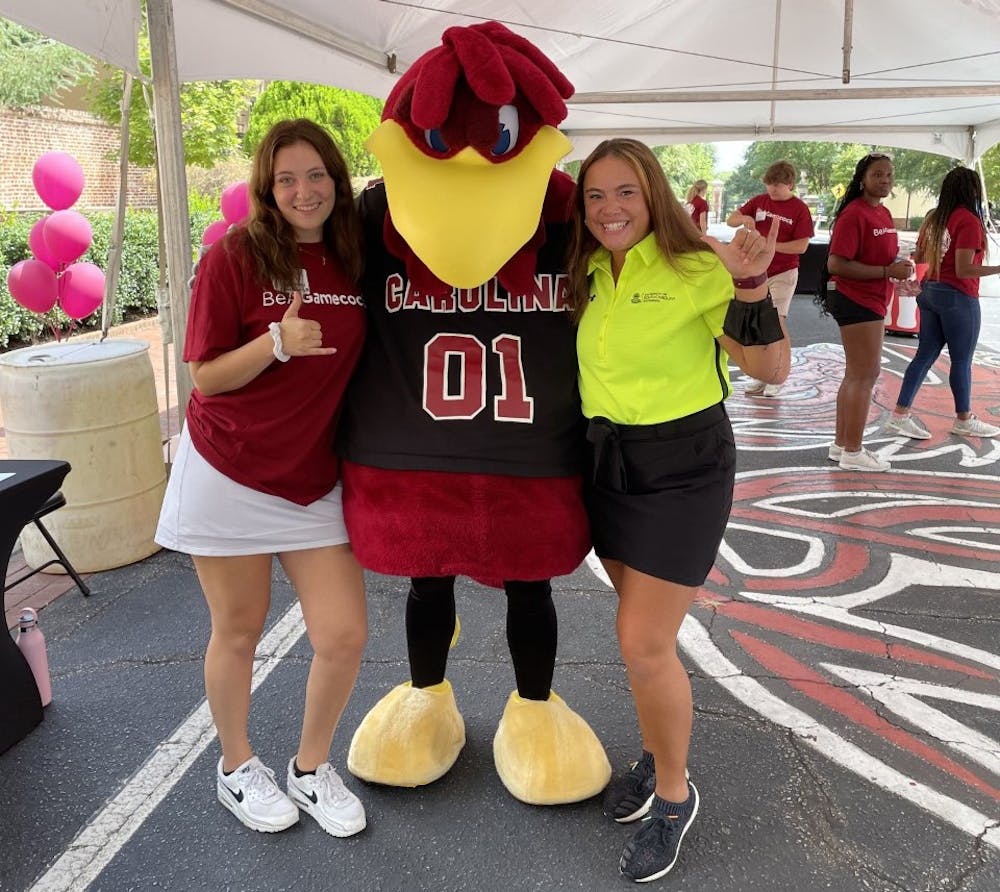Third-year psychology major Julia Barnes wanted to be an ambassador for the university, but was told the position was not a good fit for her. Admissions then guided Barnes in a new direction.
"At first, I was like kind of mad, you know, because I wanted to be an ambassador," Barnes said.
Instead, Barnes was introduced to a group called Gamecock Connection. This year, she became the New Member Training Chair, a new position in which she prepares new members to talk to prospective students.
"But then I actually learned that Gamecock Connection was a way better fit for the amount of involvement that I wanted to have, and it wasn't, like, as much as a time commitment, but I still got to interact with prospective students and meet new people who also were passionate about USC," Barnes said.
Gamecock Connection is a volunteer group of students that work with the Office of Undergraduate Admissions. Members take on leadership positions and gain service hours by representing the university, giving tours and sitting in on student panels.
Third-year political science major Dominique Harris was introduced to Gamecock Connection by her University 101 professor Katherine Hilson during her first year. Harris is now the president of the group.
"I got really close with admissions, and I really like just ended up enjoying it a lot, and actually, it changed me into thinking I wanted to go into higher ed because of like the involvement, meeting freshman, new students, prospective students, transfers or anything like that," Harris said.
Barnes said she thinks it's important for prospective students and even new transfers to hear from actual students rather than staff.
"I think it's important for students to talk to each other because I think that (prospective) students have questions sometimes that like faculty and staff either can't answer or a student wouldn't feel comfortable asking a faculty or staff member," Barnes said. "You're not going to ask a professor of the school you want to go to like, 'Hey, is it important if I join Greek life?'"
To let prospective students hear from current students, members of Gamecock Connection can return to their own high schools to talk about USC through a program called "Taking Carolina Home." The group also matches up prospective students with current students in their interested majors.
"It's honestly just getting the perspective of current students," Harris said. "So we also do a member match up, so if there's a prospective student who wants to maybe major in business or something like that, we can pair them up with a student so they get kind of feel for the university."
Third-year psychology student Jazmine Hernandez said she joined her first year after hearing about the group in University 101. After COVID-19 disrupted in-person events her first year, she became Continuing Member Training chair her second year where most events were moved online.
"Everything was online, so we didn't get to have any of our events, which was bad for the new members that joined, but it was still really fun to see everyone and train everyone still," Hernandez said.
In addition to answering frequently asked questions, the group also incorporated COVID-19 policies into its member training held by the Office of Undergraduate Admissions.
Another adjustment the executive board has faced is having its advisor, Elizabeth Ballew, out on maternity leave. In her absence, graduate student Deleigha Hodges has taken over.
"Honestly, it's kind of new for everybody because we're all getting adjusted," Harris said.
Overall, Harris said she likes seeing the students' dedication to their university.
"It just feels so good that people want to dedicate their time to talk to new students and everything like that because, honestly, they really don't have to," Harris said. "You know that the people who are a part of the organization want to be there because they constantly participate, go to the open houses, want to like share what they know about the university and their personal experiences, and I think that's really amazing."

